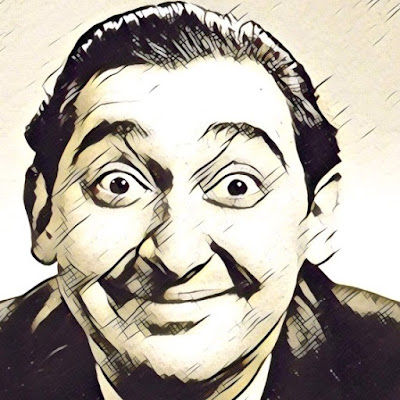I was born in 1968, a year after the Six-Day War. It's hard to overstate the importance of that event to American Jews or its impact. The American Jewish community had been generally Zionistic in the past, but suddenly went full on bananas for everything Israeli after that.
Hebrew names made a real comeback, and Jews who previously had Americanized version of Hebrew names often switched the the Hebrew pronunciation. So I grew up with Aris, Tzvis, Devorahs, Eitans, and the like. Israeli food came into vogue, mostly falafel and hummos, which, son of a gun, I have in my fridge right now.
Hebrew schools made sure to teach contemporary conversational Hebrew alongside making kids memorize prayers. The walls of my Hebrew school were festooned with posters that looked like they had been made about 1969, generally featuring young Israelis romping in mountains and on coasts, some wearing that blue and white bucket hat, called a kova tembel, which made every Israeli look a little like Gilligan from Gilligan's Island. Most of my friends went to Israel at some point during their adolescent or teen years, often on a program that took them on tours of the major cities, had them swim in the dead sea and climb on Masada, and then put them to work on a kibbutz for a while.
This was at a time when Yiddishkeit was in decline, mostly, but for a revival of klezmer music. Yiddish names certainly were in decline. Both my parents have Yiddish names: My father is Zalman and my mother is Khaya Faygele, but you'll never hear them use those names. Dad goes by Sheldon, mom goes by Claire, and even that is an Americanization of her already Americanized English name, Clara Fanny. I'll call her that every so often and she despises it.
I understand it, even if it disappoints me. There is great pressure in America not to be too visibly other, if you can help it. I saw a Twitter post recently advising that if you are thinking about giving your child a name, type it into a word processing program and if the red squiggle appears under it, reconsider. That was yesterday.
The pressure was greater when my mother was a girl. Externally, there a collective accusation that Jews were inviting their own oppression by refusing to assimilate, and internally there was a mixture of gung-ho Americanism and unfeigned embarrassment about Old World Jewish culture. Some of this was certainly a sort of collective post-traumatic stress disorder brought on by the Holocaust, which was so inconceivably terrible that many did not want to conceive of any of it, even the culture that was destroyed by it. So you started hearing Yiddish names less and less. The only one I recall hearing in my childhood was the nickname Shvartze, meaning "black," which was given to a dog.
I love Yiddish names, though. When I first heard the name Fyvush Finkel, I was thrilled; I don't think I had ever heard a name more Jewish. You find a lot of names like this in Yiddish theater: Reizl Bozyk, Moishe Oysher, Menasha Skulnik, Velvel Zbarjer. Oof, what names. If you're a Jew named, say, George Miller, you could be anything. If you're a Jew named Naftule Brandwein, there's no question what you are, and you're probably just going to have to become a klezmer clarinetist or something. Which Naftule did.
I was more Anglicized once. My parents named me Matthew Sparber, and that's what I was called until I was a teenager. But I was named after my great-uncle Max, and so I started to ask people to call me Max, which sounded to me like the name of someone you might meet playing canasta by the pool at Grossinger's. But even Max was Americanized; my great-uncle's Yiddish name was Morduch, and if I had known more about Yiddish I might have gone with a diminutive of this. I am partial to Motke.
These names still have currency in some Haredi communities, but I'd love to see them develop a larger cachet in the remainder of the Jewish community. And I like Yiddish names to be really, really Yiddish, the sorts of names Yiddish humorists would have given to inhabitants of the mythical town of fools, Chelm. (It's an actual place in Poland, but for some reason European Jews created their own version of Chelm and populated it with idiots.)
Some of our best words come from Yiddish names. Shmendrik, as an example, is the name of the main character in Abraham Goldfaden's 1877 play "Shmendrik, oder Die komishe Chaseneh." The character was a moron and a mama's boy, and the name proved to be so useful that it was immediately absorbed in Yiddish, the way Scrooge was in English.
So here's a list of some of my favorite Yiddish names. Make us of them as you will, but, please, use them.
Men's names:
Avroshka
Beynesh
Bendit
Dvoshe
Fishl
Motke
Tevel
Zaydel
Women's Names
Blima
Breindy
Faigy
Kreindal
Sprintze
Syshe
Toltse
Tzipi
Zelde

